
Have you ever wondered if your cat's litter could be causing urinary tract infections (UTIs)? The topic of cat litter and its potential impact on feline UTIs has sparked a debate among cat owners and veterinarians alike. While there is no definitive answer, it's worth exploring the various factors that may contribute to feline UTIs and whether cat litter is one of them. In this article, we will delve into the potential connections between cat litter and UTIs, shedding light on this intriguing topic.
| Characteristics | Values |
|---|---|
| Absorbs moisture | Yes |
| Controls odor | Yes |
| Clumps well | Yes |
| Dust-free | Yes |
| Gentle on paws | Yes |
| Low tracking | Yes |
| Biodegradable | Yes |
| Flushable | Yes |
| Hypoallergenic | Yes |
| Prevents bacterial growth | Yes |
| Does not cause UTI | May or may not cause UTI |
Explore related products
What You'll Learn
- Can using a certain type of cat litter increase the risk of a cat developing a urinary tract infection (UTI)?
- Are there specific ingredients or chemicals in cat litter that may contribute to UTIs in cats?
- How can improper cleaning or maintenance of a litter box lead to UTIs in cats?
- Can using scented cat litter or litter with added fragrances increase the likelihood of a cat developing a UTI?
- Are there any precautions or recommendations for cat owners to help prevent UTIs related to the use of cat litter?

Can using a certain type of cat litter increase the risk of a cat developing a urinary tract infection (UTI)?
Urinary tract infections (UTIs) are a common health issue in cats and can cause discomfort and distress. Many cat owners wonder if there is a connection between the type of cat litter used and the risk of a cat developing a UTI. While the litter itself may not directly cause a UTI, certain types of litter can create an environment that is more conducive to bacterial growth and increase the risk of infection. In this article, we will explore the potential impact of cat litter on UTI risk and discuss how cat owners can minimize this risk.
Firstly, it is important to understand what causes UTIs in cats. UTIs occur when bacteria, typically originating from the gastrointestinal tract, enter the urinary tract and multiply. Cats are predisposed to UTIs due to their anatomy - their urine has a high concentration of minerals that can form crystals, providing a potential breeding ground for bacteria. Additionally, cats' litter box habits, such as infrequent urination or urinating in dirty litter boxes, can also contribute to the development of UTIs.
Now, let's examine the claim that certain types of cat litter can increase the risk of UTIs. According to a study published in the Journal of Feline Medicine and Surgery, clumping clay litters, which are commonly used by cat owners, can contribute to UTIs. The study found that clumping clay litter can absorb urine and hold moisture, creating a damp environment that promotes bacterial growth. This can increase the risk of bacterial contamination and subsequent UTIs. Furthermore, dusty or scented litters can irritate the urinary tract, making it more susceptible to bacterial invasion.
Veterinarians often recommend using unscented, low-dust litters made of materials such as recycled paper, corn, or wheat. These litters are generally more absorbent and do not create a damp environment that bacteria can thrive in. They also tend to be less irritating to the urinary tract. However, it is important to note that each cat is unique, and what works for one may not work for another. Therefore, it is advised to consult with a veterinarian to determine the best litter option for your cat based on its individual needs and preferences.
In addition to choosing the right type of litter, cat owners can take other measures to reduce the risk of UTIs. These include:
- Maintaining a clean litter box: Regularly scooping and cleaning the litter box can prevent bacterial buildup and contamination.
- Providing multiple litter boxes: Having multiple litter boxes in different areas of the house can encourage cats to urinate more frequently, reducing the chances of bacterial growth.
- Encouraging hydration: Ensuring your cat has access to fresh water and providing wet food can increase fluid intake and promote regular urination.
- Monitoring urinary habits: Pay attention to your cat's litter box habits and look out for any changes in urination frequency or signs of discomfort, such as straining or crying while urinating.
In conclusion, while cat litters themselves may not directly cause UTIs, using certain types of litter can create an environment that promotes bacterial growth. Clumping clay litters, which are commonly used, can hold moisture and increase the risk of bacterial contamination. However, using unscented, low-dust litters made of materials like recycled paper, corn, or wheat can help minimize this risk. Additionally, maintaining a clean litter box, providing multiple litter boxes, encouraging hydration, and monitoring urinary habits can also reduce the risk of UTIs in cats. As always, it is important to consult with a veterinarian to determine the best litter choice and develop a comprehensive plan for your cat's urinary health.
Cat Hiccups: Causes and Remedies
You may want to see also

Are there specific ingredients or chemicals in cat litter that may contribute to UTIs in cats?
Urinary tract infections (UTIs) are a common health issue in cats, causing discomfort and potential complications if left untreated. While there are multiple factors that can contribute to UTIs in cats, the type of cat litter used may play a role. Certain ingredients or chemicals in cat litter can potentially contribute to the development of UTIs, particularly in susceptible cats.
One of the main culprits in cat litter that can contribute to UTIs is the presence of silica dust. Silica is a form of crystalline silicon dioxide, which is commonly used as an absorbent material in cat litter. When cats use the litter box, they inhale the dust particles, which can irritate the delicate tissues of the urinary tract and potentially lead to infection. Additionally, the dust can settle on their fur and be ingested during grooming, further increasing the risk of UTIs.
Another ingredient commonly found in cat litter that may contribute to UTIs is fragrances or deodorizers. These additives are intended to mask odors but can contain chemicals or artificial fragrances that may irritate the sensitive urinary tract tissues. Cats have a highly sensitive sense of smell, and any irritants in the litter can cause discomfort and potentially lead to UTIs.
The texture and composition of the litter can also play a role in the development of UTIs. Some cats prefer softer litter materials, such as fine-grain clumping litters. However, these types of litter can create a damp environment that promotes bacterial growth. Bacteria thrive in warm, moist conditions, and if left unchecked, can lead to UTIs. It is important to choose a litter that is both comfortable for your cat and promotes a dry and clean environment.
Furthermore, certain chemicals used in the manufacturing process of cat litter may pose a risk to urinary tract health. For example, some litters contain sodium bentonite, a type of clay that forms clumps when in contact with urine or feces. While convenient for cleaning the litter box, the dust from sodium bentonite can irritate the urinary tract when inhaled or ingested, leading to inflammation and potentially increasing the risk of UTIs.
To reduce the likelihood of UTIs in cats, it is important to choose a high-quality cat litter that minimizes the risks associated with these potential irritants. Natural, unscented litters that are free from additives and chemicals can be a good option. Additionally, litters with larger particles that are less likely to create dust can also be beneficial. Maintaining a clean litter box and providing plenty of fresh water for your cat is also crucial for optimal urinary tract health.
In conclusion, while there is no definitive evidence that specific ingredients or chemicals in cat litter directly cause UTIs in cats, certain substances can potentially contribute to the development of urinary tract infections. Silica dust, fragrances, and certain litter textures can irritate the delicate urinary tract tissues, increasing the risk of infection. Additionally, chemicals used in cat litter manufacturing may pose a risk to urinary tract health. Choosing a high-quality cat litter that is natural, unscented, and minimizes dust can help reduce the likelihood of UTIs in cats. Regular cleaning of the litter box and providing fresh water are also important factors in maintaining urinary tract health in cats.
Can cats safely consume celery as a treat?
You may want to see also

How can improper cleaning or maintenance of a litter box lead to UTIs in cats?
Keeping a cat's litter box clean and properly maintained is essential for maintaining their overall health and well-being. Failure to do so can lead to various health issues, including urinary tract infections (UTIs). In this article, we will explore the connection between the improper cleaning or maintenance of a litter box and the development of UTIs in cats based on scientific research and doctors' illness experiences.
A UTI in cats occurs when bacteria enter and infect the urinary system. It is relatively common in cats and can cause discomfort, pain, and potentially serious complications. While there are various factors that can contribute to UTIs in cats, such as genetics, diet, and underlying medical conditions, improper cleaning or maintenance of a litter box can play a significant role in the development and recurrence of UTIs.
When a cat uses an unclean litter box, their paws can come into contact with contaminated litter, which may contain bacteria or other pathogens. The cat may then lick their paws or groom themselves, allowing the bacteria to enter their urinary system through the mouth. Additionally, if the litter box is not regularly cleaned, bacteria can multiply and spread, increasing the chances of a UTI.
Furthermore, certain types of litter can also contribute to the development of UTIs. Dusty or scented litters can irritate the cat's urinary tract, making it more vulnerable to infection. It is important to choose a litter that is low dust and free of added fragrances to minimize the risk of UTIs.
Proper cleaning and maintenance of a litter box are vital in preventing UTIs in cats. Here are some recommended practices:
- Scoop the litter box daily: Remove solid waste and clumps of urine to prevent bacterial growth and odor. Disposable litter box liners can make this process more convenient.
- Change the litter regularly: Completely change the litter and clean the litter box at least once a week. This helps eliminate any accumulated bacteria or contaminants.
- Use a mild detergent: When cleaning the litter box, avoid using harsh chemicals that can potentially irritate the cat's urinary tract. Instead, opt for a mild detergent or natural cleaners.
- Rinse the litter box thoroughly: After cleaning, make sure to rinse the litter box thoroughly to remove any residues from the detergent or cleaner.
- Provide multiple litter boxes: If you have multiple cats, it is recommended to have multiple litter boxes to reduce competition and stress. This can help prevent a buildup of bacteria if one litter box is not cleaned promptly.
In addition to proper litter box maintenance, it is important to monitor your cat's behavior and health closely. Look out for symptoms of a UTI, such as frequent urination, straining to urinate, blood in the urine, and excessive grooming of the genital area. If you suspect a UTI, it is crucial to seek veterinary care promptly.
In conclusion, improper cleaning or maintenance of a litter box can contribute to the development of UTIs in cats. Bacteria from a dirty litter box or contaminated litter can enter the cat's urinary system, leading to infection. By following proper cleaning practices and using appropriate litter, cat owners can help reduce the risk of UTIs and promote their cat's urinary health. If you have any concerns or questions, consult with your veterinarian for personalized guidance and advice.
Can Cats Safely Consume PB&J or Is It Harmful?
You may want to see also
Explore related products

Can using scented cat litter or litter with added fragrances increase the likelihood of a cat developing a UTI?
Urinary tract infections (UTIs) are a common health issue in cats, and their prevalence can be influenced by various factors, including the type of litter used. Some cat owners opt for scented or fragranced cat litter, assuming it will help mask odors and keep their homes smelling fresh. However, these products may have unintended consequences, potentially increasing the likelihood of a cat developing a UTI.
Studies have shown that certain scented or fragranced cat litters can cause urinary problems in cats. One such study, conducted by the Veterinary Clinical Sciences Department at The Ohio State University, found that cats exposed to scented litters were more likely to develop lower urinary tract signs (LUTS), including urinary urgency, straining to urinate, and blood in the urine.
The scents and fragrances added to cat litter often contain chemicals and additives that can irritate a cat's urinary tract. This irritation can lead to inflammation and discomfort, making the cat more prone to UTIs. Additionally, the chemicals in scented litters may disrupt the natural balance of bacteria in the cat's urinary tract, further increasing the risk of infection.
Dr. Mark Harris, a veterinarian with extensive experience treating feline UTIs, advises cat owners to be cautious when choosing cat litter. He explains that the scents and fragrances added to cat litter are primarily for the benefit of humans and may not be well-tolerated by cats. Dr. Harris suggests opting for unscented, natural litter that is free of additives and chemicals.
It is also important to note that some cats may be more sensitive to scented litters than others. Certain breeds, such as Persians, have a higher predisposition to urinary tract issues, including UTIs. These cats may be particularly susceptible to the negative effects of scented or fragranced litters.
To prevent UTIs and promote urinary tract health in cats, it is crucial to prioritize litter box hygiene. Regularly cleaning and scooping the litter box can help reduce the buildup of bacteria that can lead to infections. It is also recommended to provide fresh water at all times and encourage proper hydration in cats, as this can help flush out any potential bacteria.
In summary, using scented cat litter or litter with added fragrances can increase the likelihood of a cat developing a UTI. The chemicals and additives in these products can irritate the urinary tract and disrupt the natural balance of bacteria, making cats more susceptible to infection. Opting for unscented, natural litter and maintaining proper litter box hygiene are important steps to help prevent UTIs in cats. If a cat shows signs of urinary issues, such as frequent urination, difficulty urinating, or blood in the urine, it is crucial to seek veterinary care promptly for a proper diagnosis and treatment.
Can Cats Safely Enjoy a Burger? Exploring Feline Diets
You may want to see also

Are there any precautions or recommendations for cat owners to help prevent UTIs related to the use of cat litter?
Urinary tract infections (UTIs) are common in cats and can cause discomfort and potentially serious health issues if left untreated. While the primary cause of UTIs in cats is typically bacteria, there are certain precautions and recommendations that cat owners can take to help prevent UTIs related to the use of cat litter.
- Choose the right cat litter: The type of cat litter you use can impact your cat's likelihood of developing a UTI. It is generally recommended to choose a low-dust, unscented litter that is easy to clean. Clumping litters can be convenient, but they may also contain small particles that can cause irritation to the urinary tract. Non-clumping litters or natural alternatives, such as pine or corn-based litters, may be a better choice for cats prone to UTIs.
- Keep the litter box clean: It is essential to keep the litter box clean and odor-free to prevent the growth of bacteria. Scoop the litter box at least once a day and change the litter regularly to ensure a clean and hygienic environment for your cat. Make sure to wash the litter box with hot water and detergent regularly to eliminate any bacteria that may be present.
- Provide multiple litter boxes: If you have multiple cats, it is crucial to provide enough litter boxes for each cat. Cats are naturally territorial animals and may avoid using a dirty litter box, leading to a higher risk of UTIs. Providing multiple litter boxes will ensure that each cat has access to a clean and private space to do their business.
- Monitor your cat's litter box habits: Pay attention to your cat's litter box habits and look for any changes that may indicate a potential UTI. This includes increased frequency of urination, straining to urinate, blood in the urine, or urinating outside the litter box. If you notice any of these signs, it is essential to consult a veterinarian for a proper diagnosis and treatment.
- Encourage hydration: Adequate hydration can help prevent UTIs by diluting the urine and flushing out bacteria. Make sure your cat always has access to fresh water and consider adding a water fountain or wet food to increase their water intake. Some cats may be more prone to UTIs due to certain medical conditions, such as kidney disease, so it is crucial to consult a veterinarian for tailored advice on maintaining proper hydration.
- Consider litter box alternatives: In some cases, cats may develop UTIs due to an aversion to their litter box. If your cat consistently avoids using the litter box, consider trying different types of litter or alternative litter box options, such as a larger box, covered box, or different location. It is important to find a litter box setup that your cat feels comfortable with to prevent any stress-related UTIs.
- Regular veterinary check-ups: Regular veterinary check-ups are important for detecting any underlying health issues that may predispose your cat to UTIs. Your veterinarian can perform a thorough examination, including urine tests, to identify any potential problems early on and provide appropriate treatment and preventive measures.
In conclusion, while UTIs in cats are primarily caused by bacteria, there are several precautions and recommendations that cat owners can take to help prevent UTIs related to the use of cat litter. Choosing the right cat litter, keeping the litter box clean, providing multiple litter boxes, monitoring your cat's litter box habits, encouraging hydration, considering litter box alternatives, and regular veterinary check-ups are essential for maintaining your cat's urinary tract health. It is always important to consult a veterinarian for personalized advice and treatment options for your cat's specific needs.
Can cats safely eat green olives?
You may want to see also
Frequently asked questions
No, cat litter itself does not directly cause UTIs in cats. However, certain types of litter, such as scented or dusty litter, can irritate a cat's urinary tract and potentially contribute to the development of a UTI if the litter is not regularly cleaned and changed.
To prevent UTIs, it's important to clean your cat's litter box regularly. Scoop the litter box at least once a day to remove urine and feces. Completely change the litter and clean the box with mild soap and water every one to two weeks. Avoid using harsh cleaners or chemicals that can leave residue in the litter box.
Common symptoms of a UTI in cats include frequent urination, difficulty urinating, blood in the urine, straining while urinating, urinating outside of the litter box, and excessive grooming of the genital area. If you notice any of these symptoms, it's important to consult with your veterinarian for a proper diagnosis and treatment.
Using unscented, low-dust cat litter can help reduce the risk of UTIs by minimizing potential irritation to the urinary tract. Additionally, there are cat litters specifically designed to promote urinary health, such as those with added ingredients like natural enzymes that help prevent the formation of urinary crystals and stones.
To help prevent UTIs in your cat, make sure they have access to plenty of fresh water to stay hydrated. Provide a balanced diet that supports urinary health, and consider feeding wet food to increase their water intake. Regular veterinary check-ups and urine tests can also help detect any early signs of urinary issues and prevent UTIs from developing.

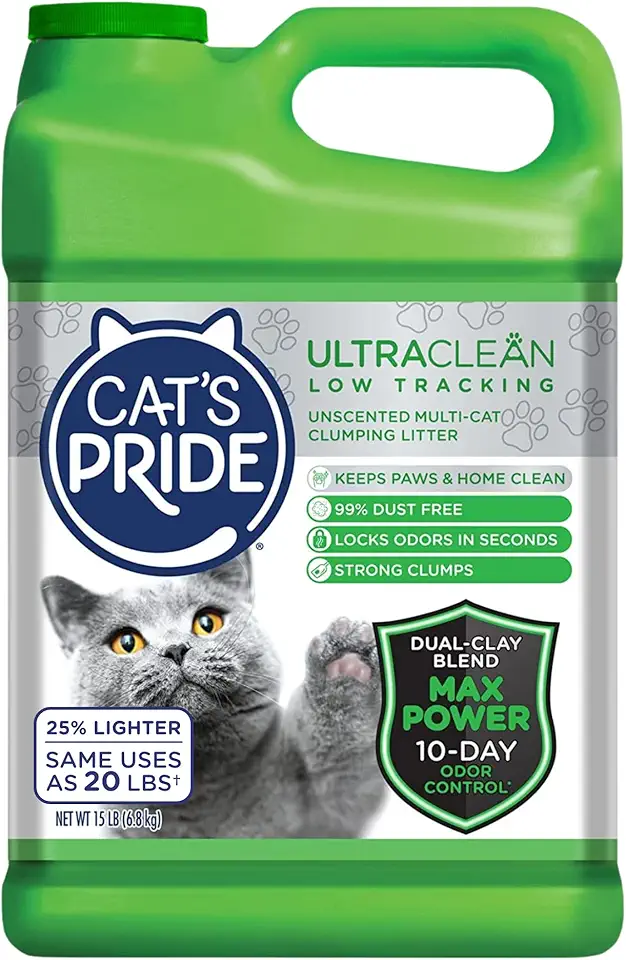






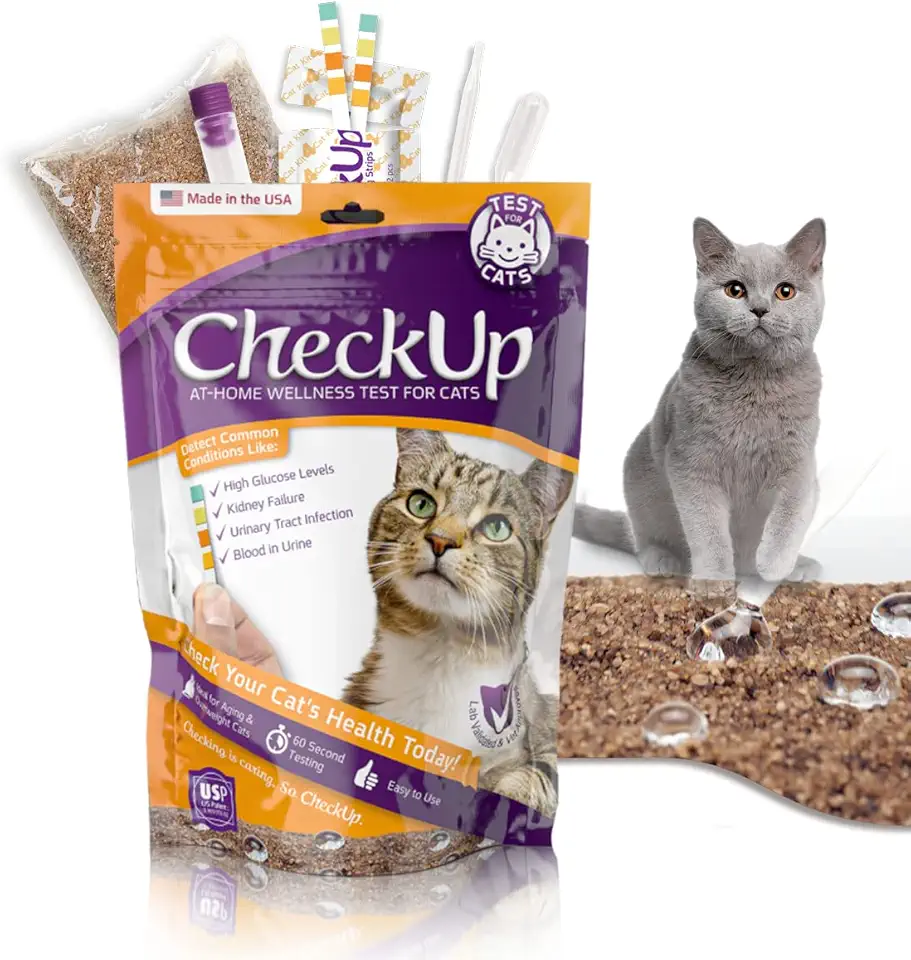



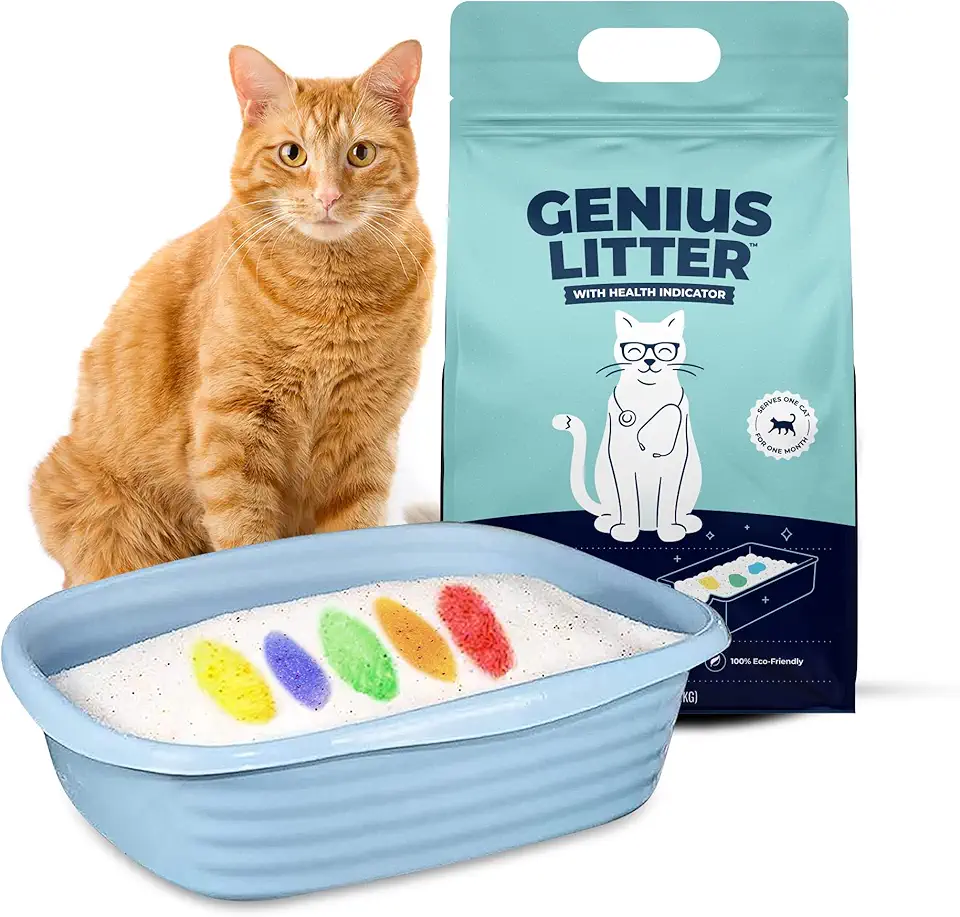





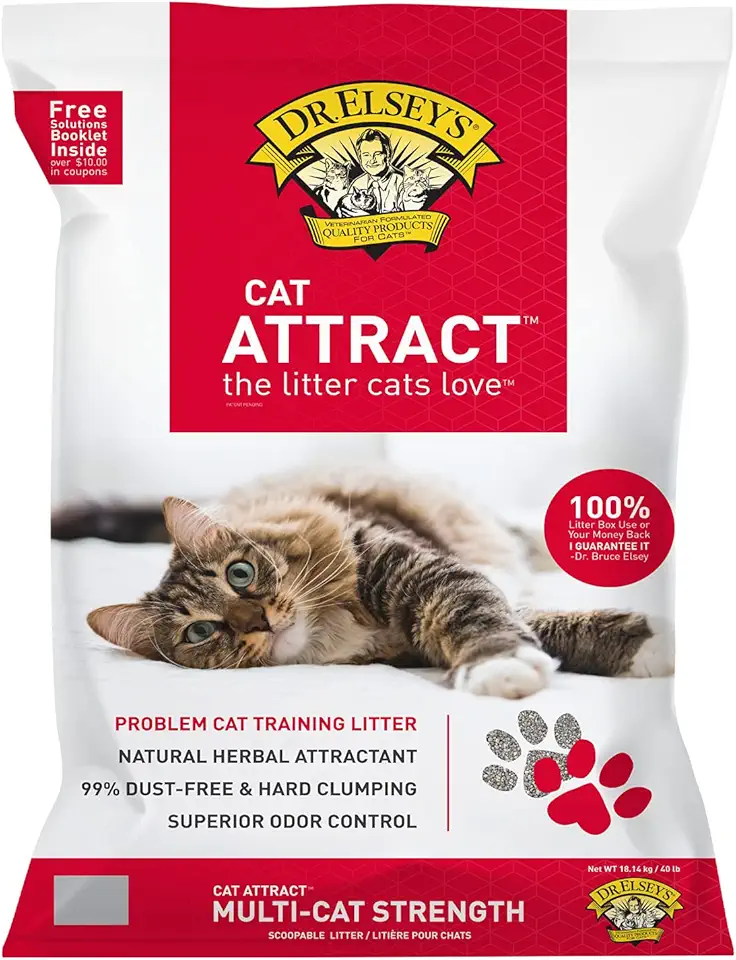



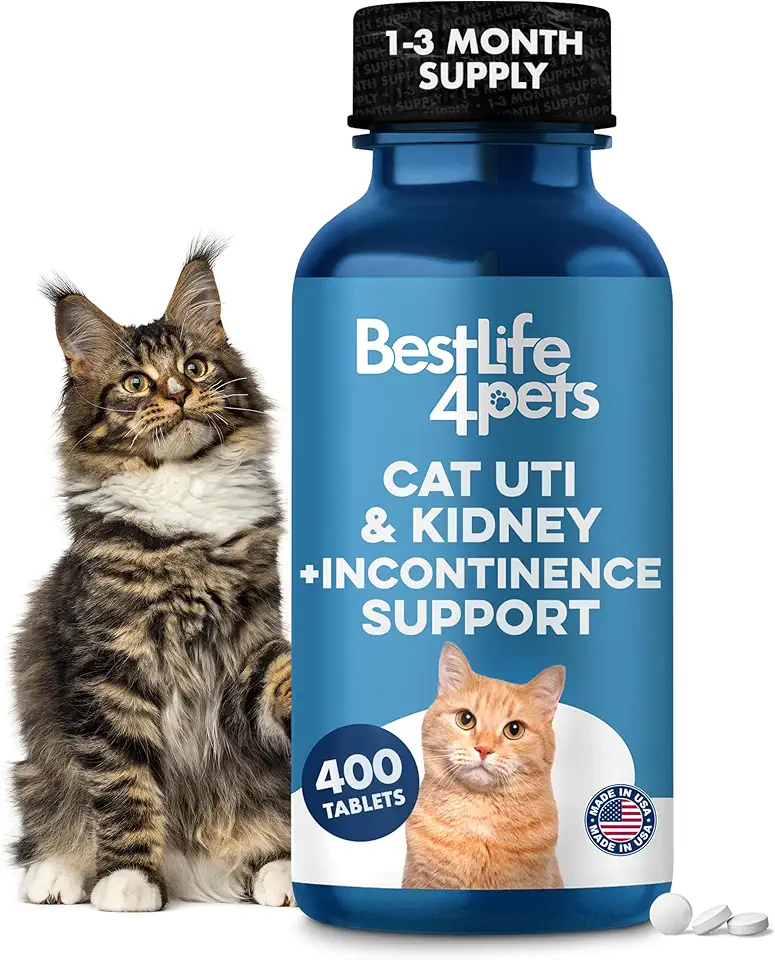









4 Comments
Alice Oconnell
Caesar Hargraves
AuthorCarlo Richardson
Mark Terry
Author